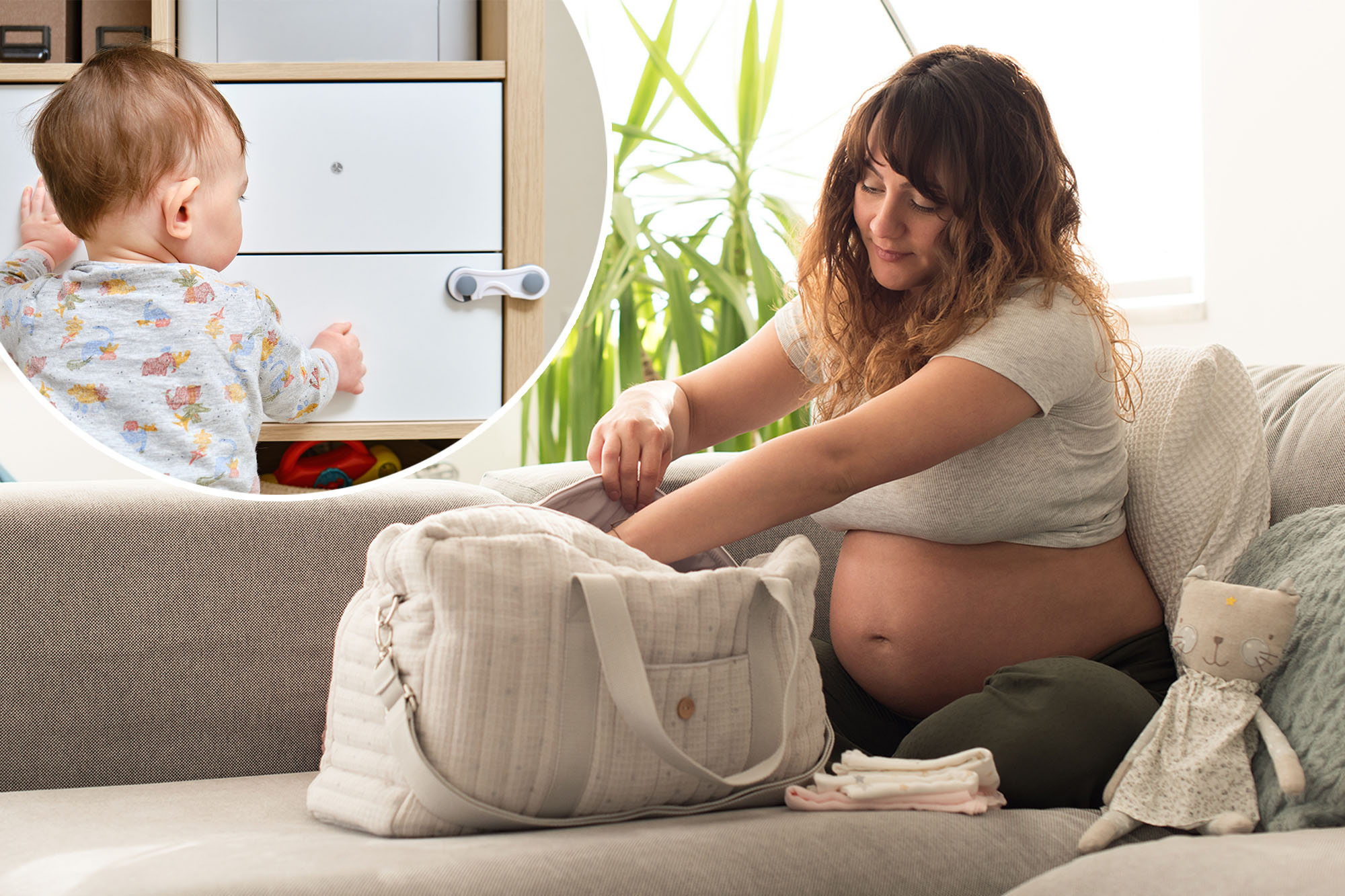
How early should you have everything ready before the baby arrives?
According to a new survey of 2,000 American parents with children ages five and older, everything should be ready to go five weeks before the baby is born.
Top pre-baby checklist items for parents were packing the hospital bag (82%), setting up the baby’s nursery/sleeping room (75%) and stocking the house with everyday essentials such as toilet paper and laundry detergent (74%).
Conducted by Talker Research in partnership with Safety 1st for Baby Safety Awareness Month in September, the study found that baby-proofing the home was also a top priority during the third trimester (43%).
Revealing the amount of time parents spent researching baby and home safety, the results revealed parents spent eight hours researching before the baby arrived and seven hours after, on average.
Investigating which sources of information are most helpful, parents said they relied on advice from friends and family (61%), medical publications and experts (43%) and advice and tips from trusted brands (38%) locally to rely on influencers (24). %) and blogs (16%) for baby safety information.
Parents said safety (64%) was the top priority when deciding on their baby’s nursery/sleeping space compared to functionality (28%) and looks (6%).
New Africa – stock.adobe.com
The results also revealed that almost half (48%) of mothers carrying their babies stopped driving close to their due date.
The main reasons were fear of their water breaking while driving (43%) and concerns about being an unsafe driver due to body changes such as not being able to reach the brake pedal (41%).
During the first few weeks after the baby’s arrival, parents reported waking up four times a night, on average, because they were worried about the baby.
Africa Studio – stock.adobe.com
Parents also reported that they typically slept only four hours a night, on average, in the first three months after birth.
Looking at the specifics of home security, the survey also asked parents about home security best practices and found some gaps in knowledge.
A third (33%) of respondents reported that their baby has had a safety scare at home. Cases included sticking a needle in a socket, taking nail glue and closing your eyes and even finding a lighter and trying to light it.
The Toidi – stock.adobe.com
After the security scare, 47% admitted they had to make their homes more secure.
Along with this, almost half of parents surveyed (47%) use technology, such as monitors and smart apps, almost every day to monitor their children and make sure they are safe.
“We understand that preparing for a new baby can be a daunting and often overwhelming task. This research shows that prioritizing safety starts long before a little one arrives,” said Alisa McCoy, vice president, brand and creator of Safety 1. “From insulating the home for babies to carefully choosing reliable information sources, parents are taking every measure to ensure their baby’s well-being. We’re proud to be a part of that journey, and it’s important to us that parents feel safer as they navigate every moment and beyond.”
The survey broke down respondents by parenting style to see how habits and priorities differ and found some interesting ways.
Of the parents surveyed, 44% labeled themselves as authoritative parents who bond and communicate with their children using rules and positive discipline.
Thirty-three percent said they are gentle parents who connect through empathy and compassion. These parents were more likely to prioritize safety when setting up their baby’s nursery.
Eight percent identified as free-range parents, who allow their children to learn about the world with minimal supervision in order to learn independence.
This group spent the most time researching pre-baby (10 hours) and post-baby (eight hours) home and baby safety best practices.
Interestingly, free range mothers were also more likely to stop driving by their due date.
“This research underscores the universal priority parents place on their baby’s safety, regardless of their parenting style,” McCoy said. “September being Child Safety Awareness Month serves as a reminder to parents everywhere that providing a safe environment is critical. We are committed to changing the “no zones” to “gone zones” and helping parents feel prepared, seen and supported. “
Survey methodology:
Talker Research surveyed 2,000 American mothers with a child 5 and under; The survey was commissioned by Safety 1st and administered and conducted online by Talker Research between August 30 and September 9, 2024.
#Prebaby #preparations #main #parents #prepare #baby
Image Source : nypost.com